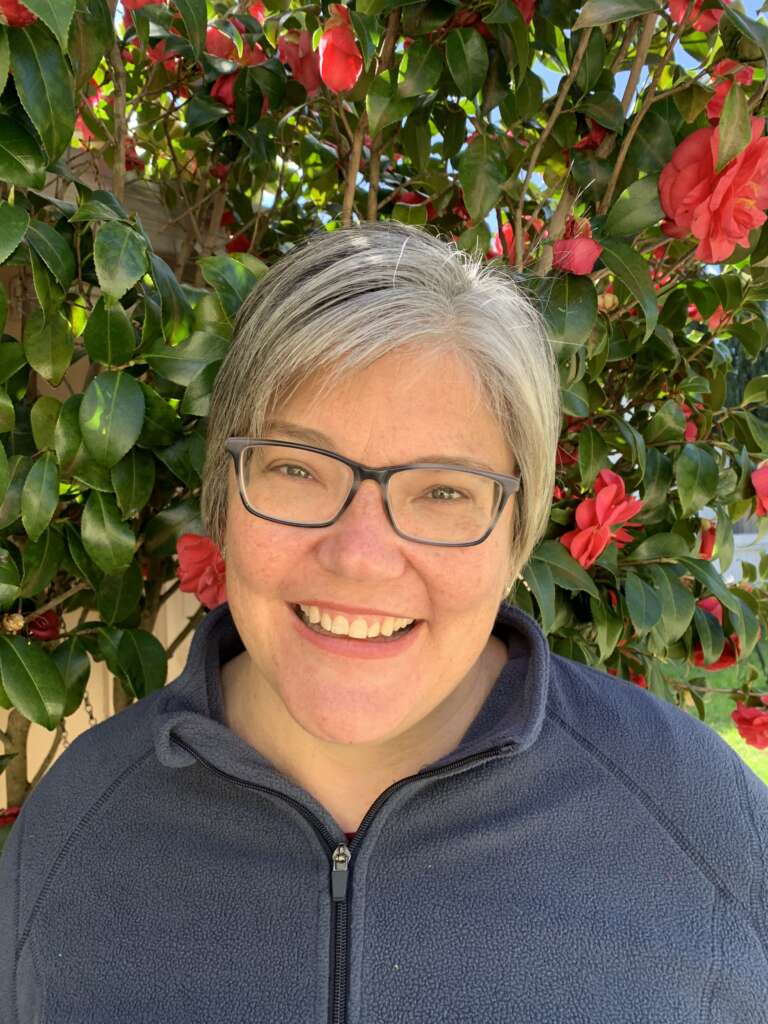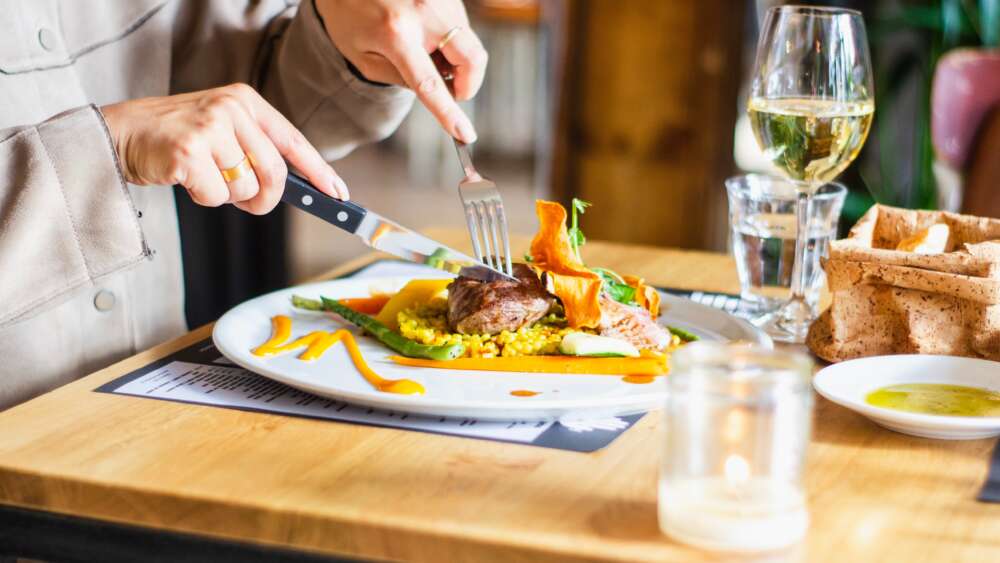The long-awaited Freedom Day in Sydney doesn’t feel like freedom for Georgina Barratt-See, a single woman who lives with the disability of restricted daily activities as a result of suffering chronic fatigue syndrome three years ago.
And as the hordes rush for the hairdressers and cafes, it’s likely that Georgina is not the only one for whom the new freedoms will not be unalloyed joy.
For this keen swimmer, singer and Christian volunteer, opening up presents a complicated picture. Though the 105 days of Sydney’s lockdown were probably her loneliest ever, the fact that other people suffered similar restrictions to herself did add a measure of contentment to her worldview.
“There’s no real benefits of opening up for me except going to church in person and seeing my mum.” – Georgina Barratt-See
There were other benefits of lockdown that mitigated the more numerous difficulties. Being able to attend a lunchtime Bible study via Zoom was a great blessing since Georgina has found it hard to get to evening Bible studies since she got sick. She was also able to teach Scripture (SRE) and she saved two hours a day in commuting time by working from home.
“There’s no real benefits of opening up for me except going to church in person and seeing my mum,” she says.
“I don’t have the energy to meet up with a lot of people and putting commuting in just takes energy that I don’t have.
“I will miss the upsides of lockdown and it’s likely I won’t be able to attend Bible study once it returns to face to face because I’m not usually not very coherent at night.
“I think I’ll still be able to teach SRE because my workplace is not legislating a full-time return to campus and so I can work from home on Tuesdays.”
The worst part of being caged for 15 weeks, she found, was the unrelenting nature of it. Living in the Canterbury-Bankstown LGA, an area of concern during the peak of the Delta outbreak, she also felt she was living in a police state.
“You just feel like the world has sort of stopped,” she says.

Georgina Barratt-See
She missed being able to go to the ocean, being unable to take part in a local “give it away free group” of which she is a member, losing the incidental communication and community of work, and being unable to look after people.
“I get a lot of energy and joy from being around the students in my work,” says Georgina, who is a manager of peer learning programs at the University of Technology Sydney, a role in which she builds capacity and engages learners in active and collaborative learning.
“Now, you don’t see a student in the office and go ‘they don’t look very well. How are you going?’ You can’t tell how people are going. So it’s that disconnect … You’re just left with very formalised and restricted kind of relationships.”
Living in a household of one, Georgina had never felt so isolated as during lockdown, with the lack of physical touch and eating solo at every meal two of the most wearying aspects.
With the lockdown intensifying the experience of loneliness for many, Telstra last week released a video series featuring nine Australians sharing their stories of loneliness, and a dedicated hub with resources and support tools. The telstra.com/loneliness campaign was launched in response to its Talking Loneliness report which revealed that 44 per cent of Australians regularly feel lonely, and nine in ten have experienced loneliness, with half (48 per cent) too embarrassed to admit it.
Georgina was one of several people who wrote to NSW Health Minister Brad Hazzard urging the government to bring a singles bubble, which it did on July 28.
“Until they brought that in, it was really hard,” she says. “But I’ve had a bubble buddy since then, and she comes over on Sundays. Sometimes she brings lunch and we eat together – you know, eating on my own for 21 meals a week is not something I normally do. So she comes over, we have a catch-up, we have a walk, she gives me hugs and I get to touch another human. That’s been good too.”
“So many of them have been struggling, so it just takes a toll on yourself as well, because you want to look after them.” – Georgina Barratt-See
For Georgina, the psychological impact of lockdown – including not being able to swim for three months – has left her struggling.
“At times I have felt very depressed. I can feel the weariness and the exhaustion of lockdown, it’s just been overwhelming. I think, being a manager of students, you want to look after them. And so many of them have been struggling, so it just takes a toll on yourself as well, because you want to look after them.
“I’ve been quite worried about my mum. She didn’t have a bubble buddy, and because I couldn’t see her, she hasn’t been able to do any volunteering. Her days are just going to the dog park, go to the beach for a swim and then go home. So [I’ve had] this sense of not being able to look after people, and also just really struggling with your own sense of isolation and grief and worry about things, as well as tiredness and exhaustion.”
Georgina still considers herself lucky, however, because she has a job in which she works with other people.
“If I was an elderly person, like my mum or someone who wasn’t able to work from home or out of the home, I think that would have been worse. Honestly, the two weeks out of the 15 that I found the hardest in some senses were actually the weeks I had off work. I lost this structure and I had to be really deliberate to catch up with people. Otherwise, I wouldn’t talk to a single person all day.”
Despite her disability, there are things Georgina is looking forward to about coming out of lockdown.
“Just seeing people, being able to catch up and being able to eat in a cafe,” she says.
Also being able to swim in the ocean, do some bushwalks and visit relatives in Canberra. And maybe even plan a holiday.
“I’ve had five different holiday ideas and plans that I’ve had to cancel. I’m on my third booking of Hamilton.”
“I’m looking forward to being at church with people.” – Georgina Barratt-See
A member of St Matts Anglican Ashbury, in Sydney’s Inner West, Georgina felt she lost touch with her church family last year, but this year she has re-established connections through Zoom church and fellowship.
“I don’t think that my faith has shifted. I’m still very conscious of being a child of God and being loved by Jesus. But I think what has changed is this sense that we are really not in control,” she says.
“And really this world is broken and having pandemics or bushfires or floods or just everything that happens is a symptom of the world being broken. So it just makes you just more aware of the fact that you can think you’re in control and you can plan things, and then realise it’s true that if God wills it, it’ll happen. And if God doesn’t, it won’t happen. You can plan holidays, you can plan to catch up with family, you can plan other things, but, ultimately, we’re not a control.”
Georgina is eager to go back to church next Sunday.
“I’m looking forward to being at church with people. I think the risk of getting very sick once you’re double vaccinated is very low, so that’s a risk I’m happy to take. There won’t be any hesitating going back this time.”
If you are experiencing mental health challenges or supporting someone who is, check out this comprehensive list of services, resources and support options from Mental Health Australia.
Beyond Blue: 1300 22 4636 is a trusted source of information about mental health and support for suicide prevention. It provides information to people suffering from depression and anxiety, at risk of suicide, or who have attempted to take their life. It also provides practical advice for people worried about someone they think might be suicidal on how to help.
Lifeline: 131 114 provides 24/7 mental health support and suicide prevention services.
Email This Story
Why not send this to a friend?


